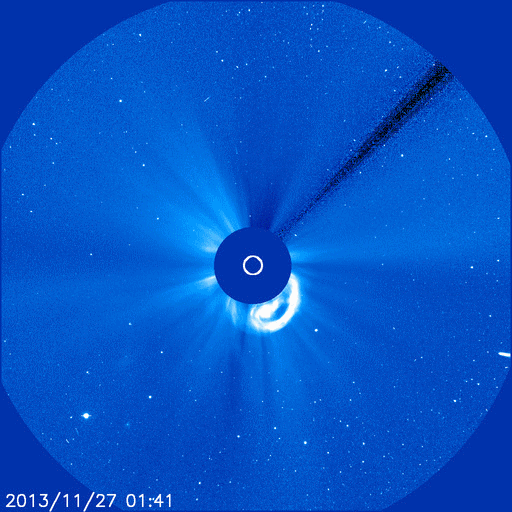didnt watch that youtube vid so i dont know if that explains it better. I always had these questions too...i think i now understand it better....
The big bang theory doesnt say everything came from one point, in fact the 'theory', or at least the common understanding of that theory says almost the opposite. Bear in mind that before the big bang there was no space...no time...no nothing. The universe simply came into existence one day.
Its easy to think big bang...then there is now expansion, therefore we are all expanding from one point, but we are not. The universe is expanding from everywhere to everywhere. There's the old balloon method of understanding that concept - you have a deflated baloon, draw two dots on it 1cm apart then blow the balloon up...the two dots will expand apart from each other but they are not expanding from a single point, but every point. Its the fabric of space that is expanding. It's also expanding faster than the speed of light. We know this due to the 'red shift' when observing far away galaxies. This is a result of the light waves being 'stretched', in that the photons that make up light on their merry way from a far away galaxy to our eyes end up having the space in which they travel expand before they can get to their destination. Now, i think that the galaxies that are furthest away are expanding away faster than those closest...so andromeda (our nearest galaxy) is not expanding away faster than speed of light but the further away ones are because the further away they are from you the faster the space expands. Now, the real head f##k is that this is the same from every vantage point in the universe so space is expanding faster the further away everything is away from everything...i think. It has something to do with the universe having to be homogenous from everywhere...space expansion must equal itself out, like how if you have a really big stick, you point it away from you and turn, the end of the stick closest to you is travelling slowly, yet the end of the stick furthest away from you is travelling really fast in 'space' in comparison. I thnk thats how it was explained to me
So are we expanding? Getting fatter? No, apparently not. The gravitational forces that bind us on an atomic level are significantly stronger than the expansion of space. This is the same for galaxies/solar systems themselves, they are not expaning from within themselves but the space around them is. Bit convenient that i always think.
The reason why galaxies collide is that as well as the previous point that gravitational forces are much stronger than that of the expanding universe (think of it in the same way a fridge magnet can overcome the earths gravitational pull - gravity holds the bloody moon where it is but a fridge magnet can overcome that force!) and all matter in the universe is attracted to each other by gravity, but also galaxies are moving around in space freely anyway, like a bit of flotsom on water, so at some point its always going to happen that galaxies will collide.
I have no idea if any of that made sense...i just started typing and got carried away

